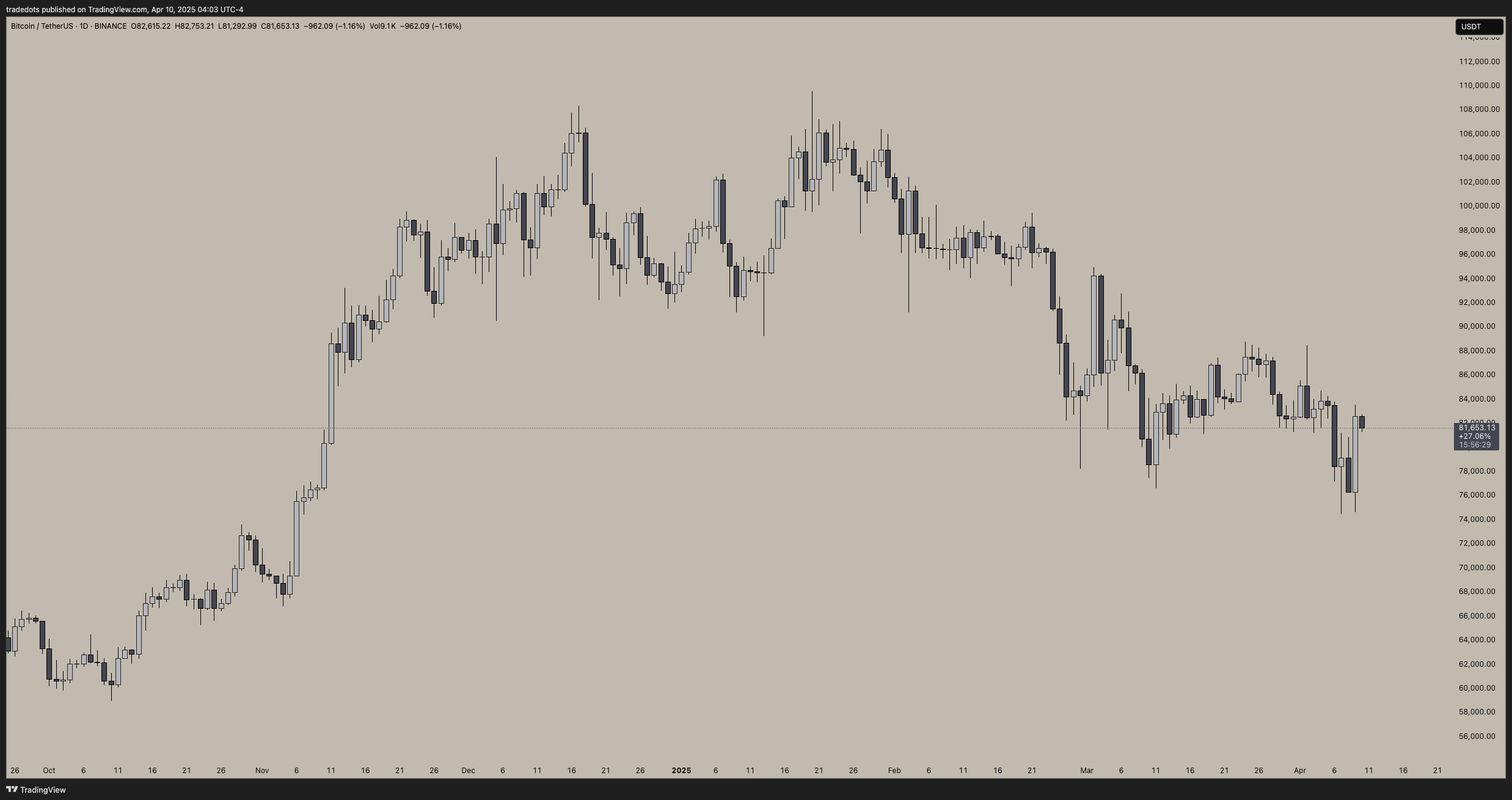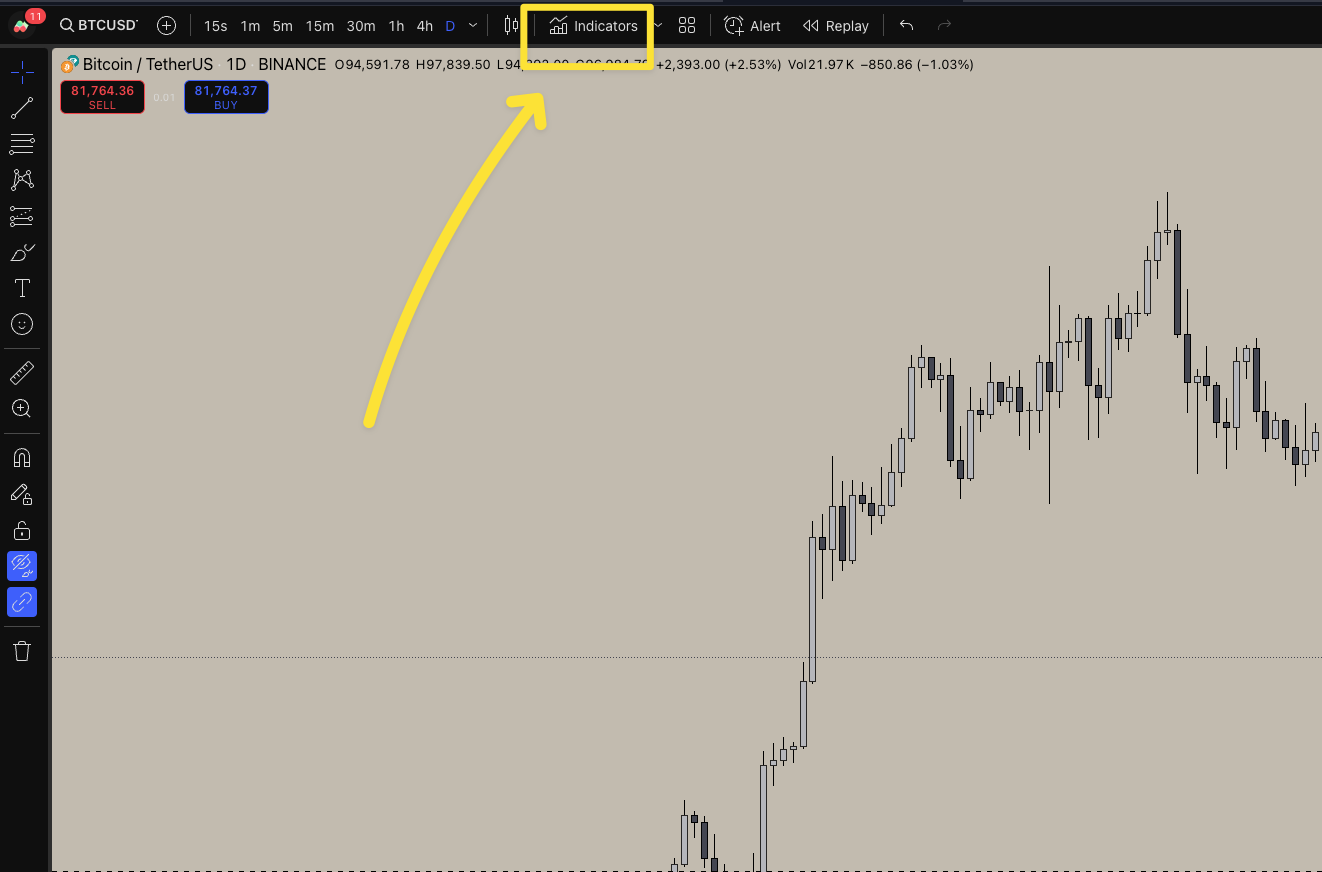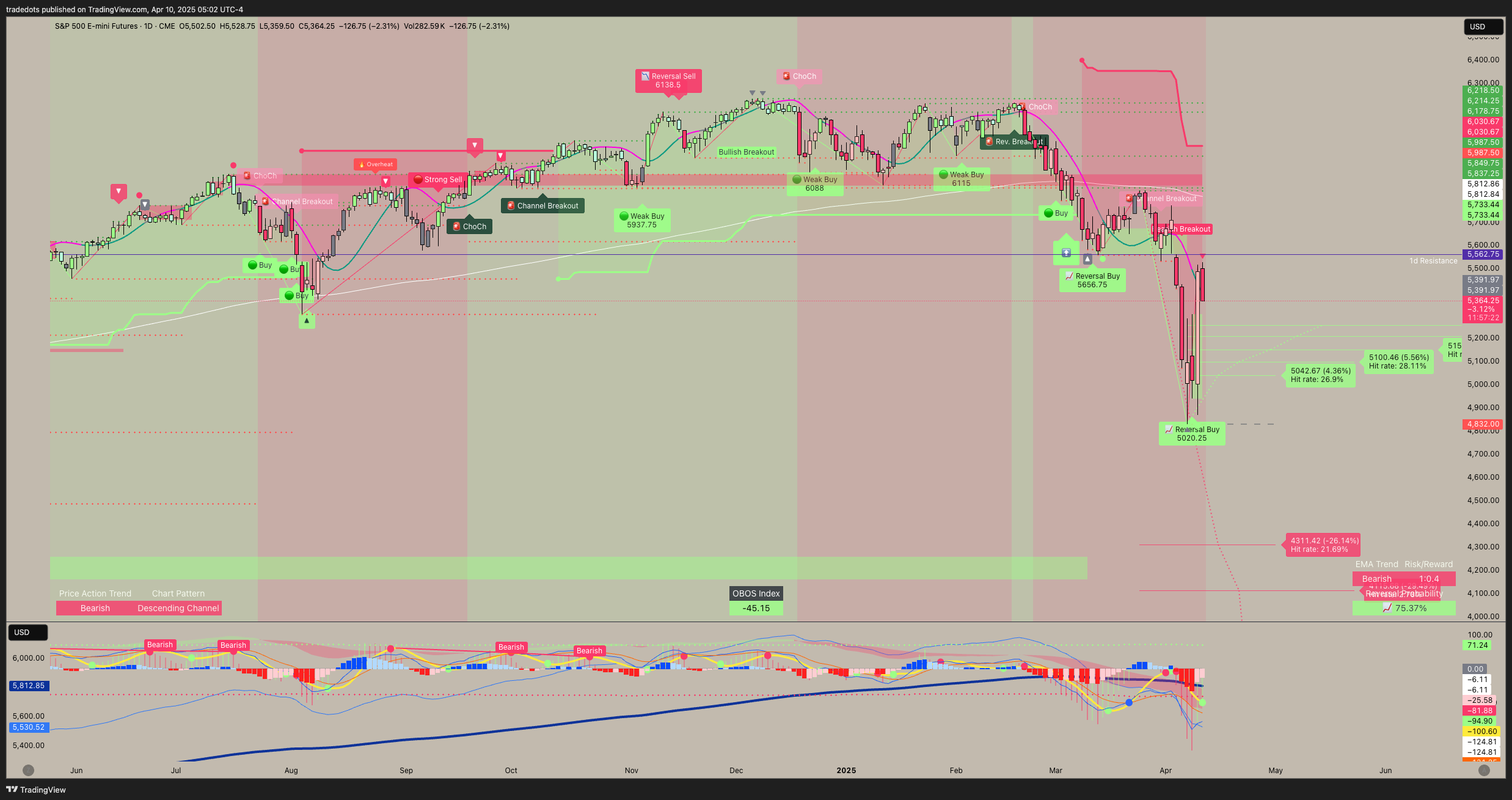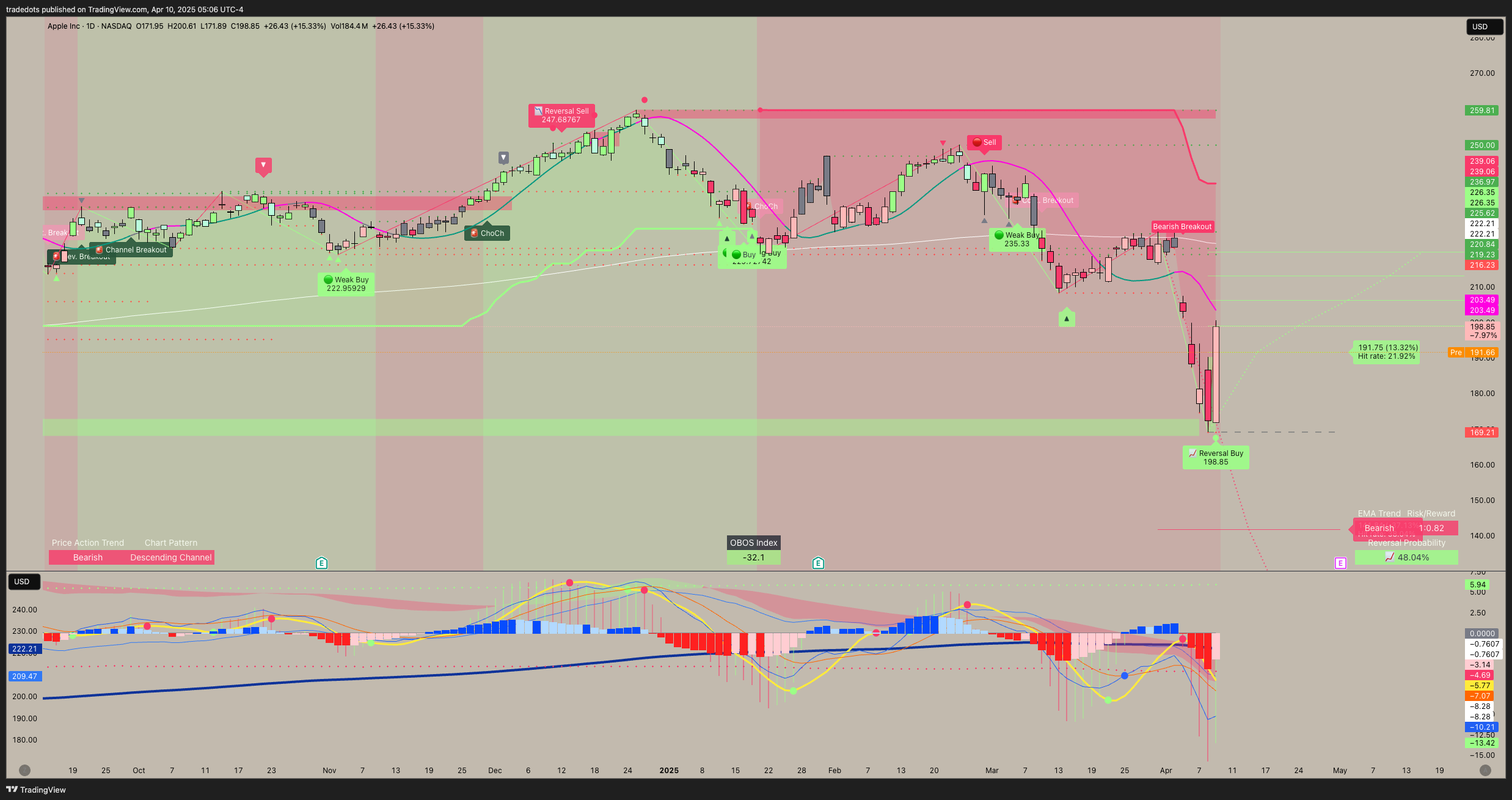Getting Started
Platform Compatibility
TradeDots indicators are primarily designed for TradingView, the world's leading charting platform used by millions of traders globally. Our indicators are fully optimized for TradingView's Pine Script environment, ensuring smooth performance and reliable signals.
Supported Platforms:
| Platform | Compatibility | Notes |
|---|---|---|
| TradingView | ✅ Full Support | All features available |
| TradingView Mobile | ✅ Full Support | Optimized for mobile viewing |
| MT4/MT5 | ⚠️ Coming Soon | Currently in development |
| Other Platforms | ❌ Not Available | No plans for additional platforms |
TradingView Plan Requirements
TradeDots indicators work with all TradingView plans (Including the free plan). For the best experience, we recommend at least a TradingView Essential plan, which allows you to use multiple indicators simultaneously and set up custom alerts. But the performance is the same on all plans.
Installation Guide
Adding TradeDots indicators to your TradingView charts is quick and straightforward. Follow these simple steps to get started:
Adding from TradingView Indicator Library
-
Open TradingView and log in to your account
-
Navigate to your preferred chart

-
Click the "Indicators" button in the top toolbar

-
Search for "TradeDots" in the search bar
-
Select your desired TradeDots indicator from the search results
Available Premium indicators include:
- Smart MACD Reversal Oscillator Pro [TradeDots]
- Price & Momentum Reversal Indicator [TradeDots]
- Trend Following Buy Sell Signals [TradeDots]
- TradeDots - Buy Sell Signals Pro
- Trend, Chart Patterns & Market Structure [TradeDots]
- Price Reversal Probability + Forecast [TradeDots]
-
Click on the indicators name to apply the indicator
Verifying Successful Installation
After adding a TradeDots indicator, it should appear on your chart immediately. You'll see:
- The main indicator display
- Signal markers on the price chart

If the indicator doesn't appear, try refreshing your browser or checking your TradingView subscription status.
Basic Concepts
Before diving into specific indicators, it's helpful to understand some fundamental concepts used throughout the TradeDots indicator suite:
Signal Types
| Signal Type | Symbol | Description |
|---|---|---|
| Strong Buy | 🟢🟢 | High-conviction entry with significant momentum |
| Weak Buy | 🟢 | Early trend following entry with moderate momentum |
| Strong Sell | 🔴🔴 | High-conviction sell with significant downward momentum |
| Weak Sell | 🔴 | Early trend following sell with moderate downward momentum |
| Bullish Reversal | 📈 or ▲ | Counter-trend buy at potential market turning point |
| Bearish Reversal | 📉 or ▼ | Counter-trend sell at potential market turning point |
| Breakout | ⬆ or ⬇ | Entry when price breaks through significant levels |
Market Structure Terms
- Trend: The general direction of price movement (bullish, bearish, or choppy)
- Support: Price level where buying pressure typically overcomes selling pressure
- Resistance: Price level where selling pressure typically overcomes buying pressure
- Momentum: The speed or strength of price movement
- Divergence: When price and indicator move in opposite directions
- Overbought/Oversold: Extreme conditions where an asset may be trading above/below its fair value
Risk Management Concepts
- Stop Loss (SL): Price level to exit a losing trade to limit risk
- Take Profit (TP): Price level to exit a winning trade to secure profits
- Risk-Reward Ratio: The proportion of risk taken relative to potential reward
- Position Sizing: Determining how much capital to allocate to a single trade
Your First Chart
Let's walk through setting up your first chart with a TradeDots indicator:
Step 1: Choose the Right Timeframe
Different trading styles work best with different timeframes:
- Day Trading: 1-minute to 1-hour charts
- Swing Trading: 4-hour to daily charts
- Position Trading: Daily to weekly charts
For beginners, we recommend starting with a 4-hour or daily chart to reduce noise and identify clearer signals.
Step 2: Select an Appropriate Market
TradeDots indicators work across all markets, but beginners might want to start with:
- Major forex pairs (EUR/USD, GBP/USD)
- Large-cap stocks with good liquidity
- Major cryptocurrency pairs (BTC/USD, ETH/USD)
Step 3: Add Your First Indicator
For new users, we recommend starting with the Trend Following Buy Sell Signals [TradeDots] and Trend, Chart Patterns & Market Structure [TradeDots] indicator:
-
Add the indicator to your chart using the methods described above
-
Keep the default settings initially
-
Observe how the indicator displays on your chart:
Step 4: Understanding What You're Seeing
With the two indicators applied, you'll notice:
- Buy/Sell Signals: Green and red markers on the chart indicating potential entry points
- Trend Direction: Background coloring showing the overall market bias
- Support/Resistance Levels: Horizontal lines marking key price areas
- Signal Labels: Text labels providing additional information about each signal
Step 5: Making Your First Observations
Take some time to analyze historical signals on your chart:
- How did price react after each signal?
- Which signals worked best in trending vs. ranging markets?
- What was the average risk-reward ratio of successful signals?
Step 6: Customizing Your View
Once comfortable with the default settings, try customizing the indicator:
- Click the settings gear icon next to the indicator name
- Adjust the "Buy/Sell Sensitivity" to match your risk tolerance
- Enable/disable specific signal types based on your preferences
- Click "OK" to apply your changes
Next Steps
Now that you've set up your first TradeDots indicator, you're ready to:
- Explore each indicator in depth using our detailed indicator guides
- Learn specific trading strategies that combine multiple indicators
- Set up custom alerts to be notified of new trading opportunities
- Fine-tune your settings to match your trading style and risk tolerance

Remember, successful trading requires more than just following signals. Take time to understand the logic behind each indicator and how it fits into your overall trading plan.
Need help getting started? Contact our support team at support@tradedots.xyz for assistance.